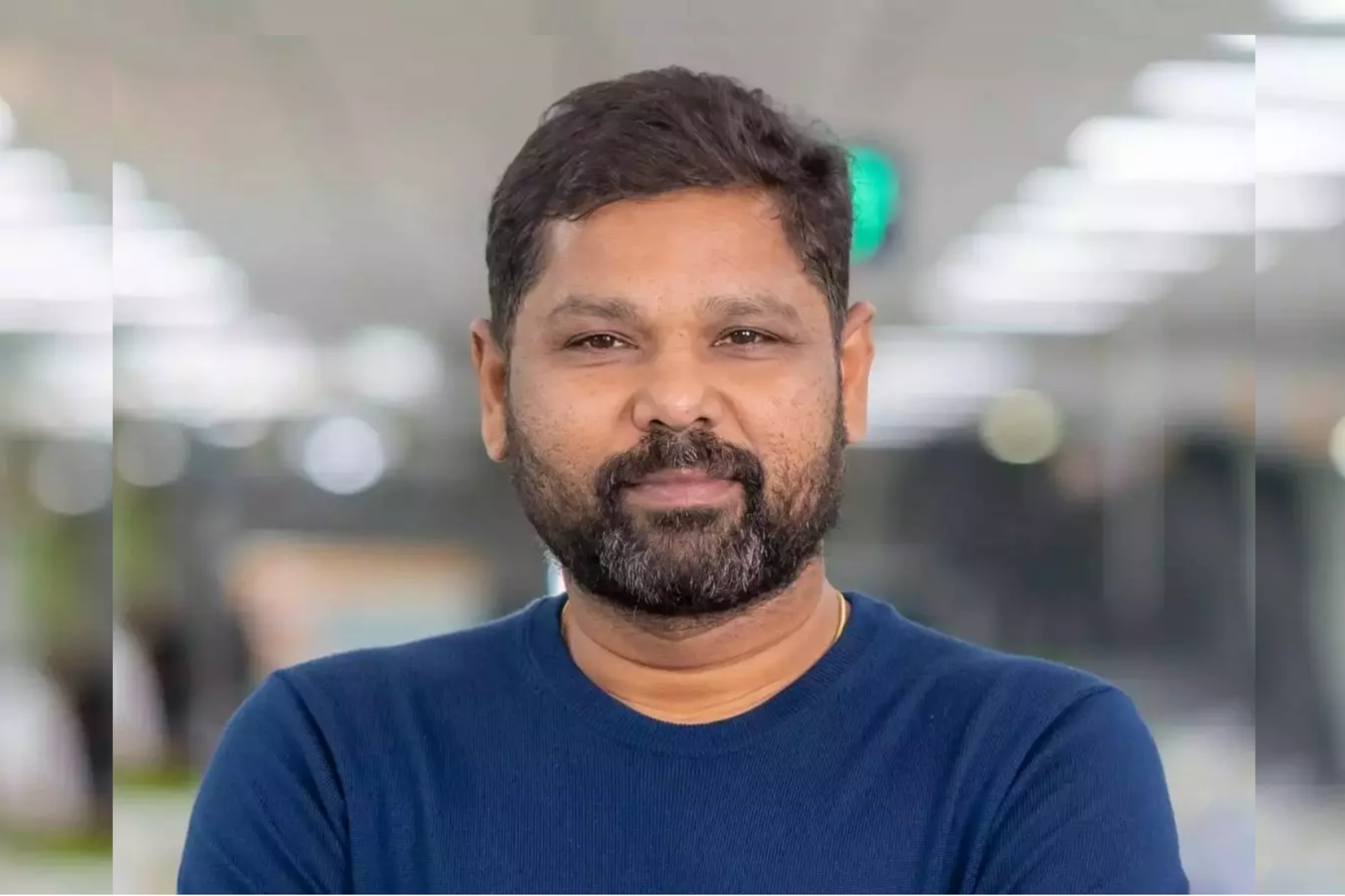Naveen Tewari's Entrepreneurial Odyssey: The Man Behind InMobi & Glance On India's position in the AI race, Tewari said, "There are two parts; AI infrastructure—we are not even participating but in AI applications, India can shine. We didn't build the underlying AI models, but we fine-tuned them and built technology on top of it. India can do amazing in AI applications, just not in AI infrastructure."
Opinions expressed by Entrepreneur contributors are their own.
You're reading Entrepreneur India, an international franchise of Entrepreneur Media.
Building two unicorns is no ordinary feat. Naveen Tewari, the founder of InMobi and Glance, has carved a unique path in India's startup landscape, navigating failures, risks, and market disruptions to build global tech powerhouses.
Yet, his journey did not begin in a business environment—it started in the quiet academic corridors of IIT Kanpur. "I grew up on the IIT Kanpur campus. My grandmother was a professor, my father was a professor, my uncle was a professor, my aunt was a professor—everybody was a professor at IIT," he recalled. "So, I clearly did not grow up in an entrepreneurial environment. In fact, I grew up exactly in a very different, somewhat opposite environment, which is that of academics."
Initially, he believed his path would involve research and higher education. But India in the mid-90s was changing—liberalisation and a growing corporate landscape ignited a thought within him. "There was this whole very interesting unrest… are we not evolving as a country or society?"
After graduating from IIT Kanpur, he took an unconventional path, choosing McKinsey over higher studies abroad. "I saw corporate India from a very different lens. It was making strides to be a much bigger force in the business world. Still, at that point, it did not strike me that one can actually venture out on their own."
That realisation came later at Harvard Business School (HBS), where he encountered three types of people—corporate professionals, consultants/bankers, and a small but fascinating group of entrepreneurs. "They had a sense of confidence that they did not have to show. They were just in their own world thinking about creation. And that was the first time I realised—wait a minute—there is a possibility of creation."
The birth of an entrepreneur
Despite lucrative job offers post-HBS, the entrepreneurial itch stayed. In 2007, he co-founded InMobi, a mobile advertising platform. By 2011, it became India's first unicorn. However, the journey was fraught with challenges. "I thought of quitting every day but didn't. Thought that I made the wrong decision every day. But I just stayed with it. And if you stay long enough with it, then you will persevere and get something."
Was Glance born out of a tough phase at InMobi? "No. Well… okay, let me say it differently," Tewari chuckled. "I knew how to get out of the tough phase, but the idea was to think about things on a much bigger canvas. While re-architecting InMobi, I also wanted to build a consumer-facing technology platform."
That thought led to Glance, an AI-driven lock screen platform that delivers personalised content and commerce experiences. Unlike InMobi, which serves enterprises, Glance was designed for direct consumer engagement. "I was trying to create a complete internet platform."
Recently, Google announced a partnership with Glance, focusing on generative AI and Android integration. "We have a very deep partnership on multiple fronts—Android and Gemini. We are leveraging generative AI from Gemini in a big manner."
On India's position in the AI race, Tewari was blunt: "There are two parts. AI infrastructure—we are not even participating. But in AI applications, India can shine. We didn't build the underlying AI models, but we fine-tuned them and built technology on top of it. India can do amazing in AI applications, just not in AI infrastructure."
The culture that fuels success
At InMobi and Glance, he has built a unique, trust-based work culture. "We don't have a performance management system, a leave policy, or strict work hours. We trust our people. And in reciprocation, they give a lot back to the company."
His 1 per cent vs. 99 per cent rule dictates that companies shouldn't create rigid processes for the 1 per cent who might misuse them at the cost of the 99 per cent who don't. "If you keep it honest and open with the 99 per cent, we can deal with the 1 per cent."
This approach has led to strong retention within his leadership team. "Almost 75 per cent of my top 50 leaders have been with me for 8+ years. We know each other's strengths and weaknesses, which helps us execute better," he concluded.











